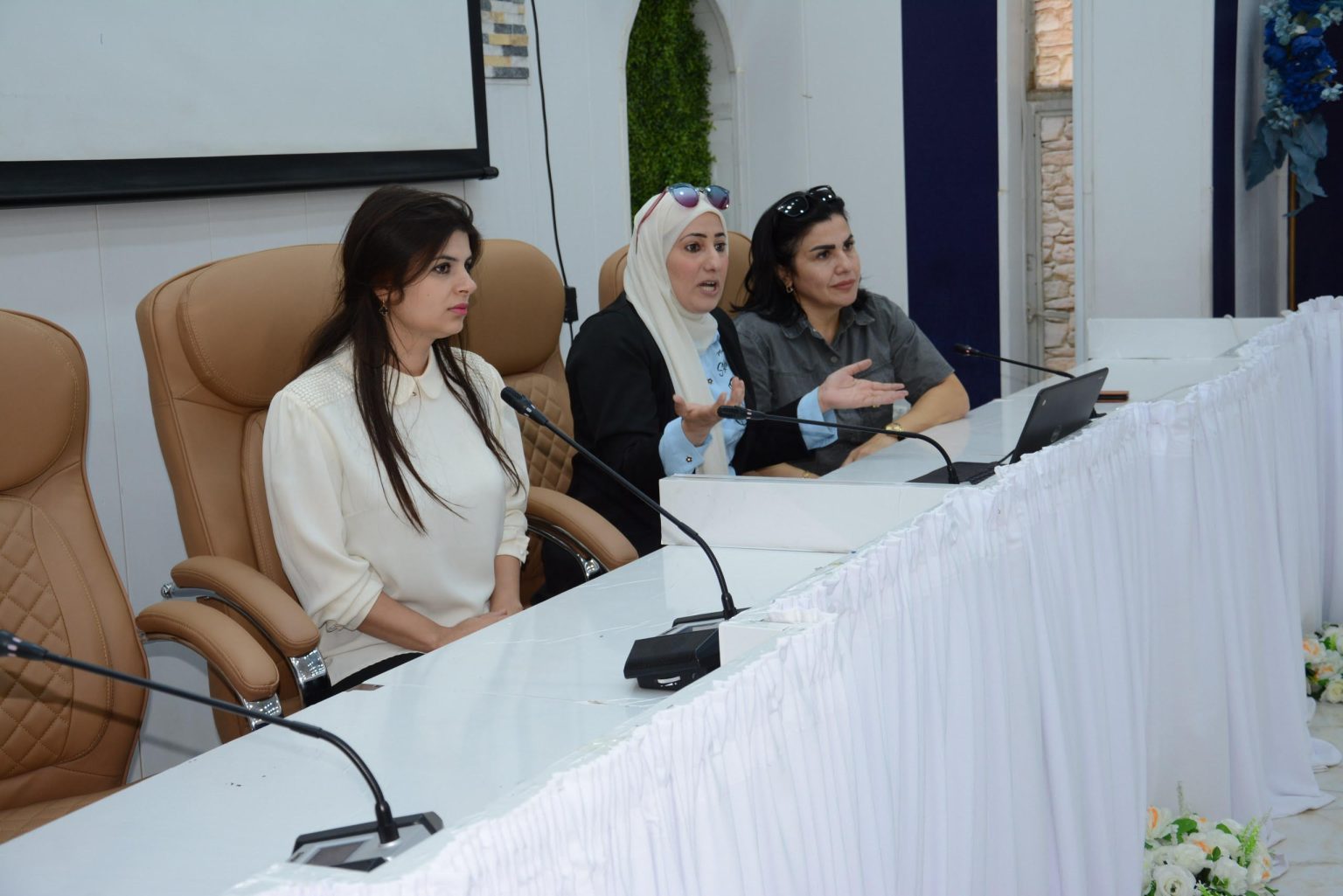The Scientific Affairs Unit at the College of Physical Education and Sports Sciences for Women—University of Baghdad organized a scientific workshop entitled (E-Learning and Blended Learning), which was presented by a group of the college’s lecturers.
The workshop aimed to introduce the concept of e-learning, its types, advantages, challenges, requirements for success, stages of developing electronic materials, and the future of e-learning in higher education institutions.
The lecturers explained that e-learning is a form of distance learning that relies on specific electronic systems and modern communication technologies such as computers, networks, multimedia, and internet portals to deliver information to learners with sound and image, in the shortest time, from anywhere, at a lower cost, and with high quality.
They also discussed the types of e-learning, including Synchronous e-learning, such as chat rooms and video conferencing. And asynchronous e-learning, through emails, file transfers, and CDs.
The workshop highlighted the advantages of e-learning, such as overcoming time and place constraints, saving effort, time, and money, providing access to education for those who were previously unable to obtain it, and reducing administrative burdens.
The lecturers pointed out challenges such as resistance to shifting from traditional to electronic learning, weak infrastructure, and the cost of designing and producing educational programs. They emphasized that e-learning has become an essential support to traditional teaching methods.
At the conclusion of the workshop, several recommendations were presented, including: Implementing e-learning experimentally by developing selected courses electronically as models. Organizing workshops in educational institutions for students and teachers to raise awareness of the importance of e-learning and providing infrastructure through trained human resources, high-speed internet connections, and advanced storage devices, as well as integrating information technology advancements into the teaching process.
This workshop supports the achievement of one of the Sustainable Development Goals (SDGs) — Goal 4: Quality Education.
